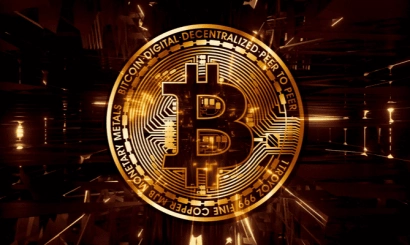Cryptoelectorate. Why bitcoin has Entered the U.S. presidential election agenda
U.S. presidential candidates from both parties speak out in support of bitcoin
U.S. presidential contenders from both parties are speaking out in support of cryptocurrency, opposing digital dollars and openly criticizing tough regulatory policies
Florida Governor Ron Desantis announced his candidacy for U.S. president last week during a joint Twitter Spaces broadcast with Elon Musk and venture capitalist David Sachs. Answering questions, he spoke at length about his stance on cryptocurrency digital assets, promising the audience that he would "defend bitcoin."
During the talk, which drew an audience of about 2.6 million, Desantis called his opponents' attempts to regulate cryptocurrencies "unwarranted government interference." "The only reason Washington is against [bitcoin] is because they can't control it. They are centralized administrators and they want to control society entirely, so bitcoin is logically a threat to them," Desantis said in response to Sachs' question about the views on the first cryptocurrency.
Back in 2022, Desantis said Florida should allow businesses to pay taxes directly in cryptocurrency and recently voiced strong opposition to central bank digital currencies (CBDC), which he sees as the antipode of decentralized bitcoin and similar payment networks. He stressed that Florida recently banned the use of government-issued digital dollars as a form of money in the state.
"If I become president, we're not going to launch a digital national currency," he said regarding the possible national implementation of CBDC. - That would be too much of a restriction on financial freedom and privacy." He opined that CBDCs would lead to a significant shift in power from individual consumers to a central authority, which "would be bad for a free society."
During the talk, the governor said that he had heard of a theory, popular on social media and in some media, that U.S. authorities, as part of Operation Choke Point 2.0, were trying to completely eliminate the crypto industry as such. Over the past year, U.S. regulators under the Biden administration have indeed taken a number of actions against cryptocurrency companies.
According to Desantis, the current administration could kill Bitcoin within four years if they continue such policies. Sachs agreed with him, recalling that it was Twitter (the social network is blocked in Russia), where the conversation took place, where a significant portion of the cryptocurrency community is concentrated.
Not just new voices
Interestingly, Desantis' possible rival in the future presidential election, Robert F. Kennedy Jr. is also openly pro-bitcoin and was invited as a speaker at a recent cryptocurrency conference in Miami, where he called bitcoin "a symbol of democracy and freedom. He accepts political donations in bitcoins, all using the Lightning Network.
Kennedy also openly spoke out about the "war on cryptocurrencies" by American regulators. He himself is an ardent opponent of digital national currencies, and his position on this issue is virtually indistinguishable from that of his opponent Desantis. Both argue that CBDCs are a threat to privacy and personal freedom. And both have promised, if they win, not to let the Federal Reserve (Fed) or any other government agency be in charge of issuing a digital dollar.
As a former presidential speechwriter and Washington think tank chief Sam Lyman wrote in a column for Forbes, there may be more than just an effort to win more votes behind the two presidential candidates' focus on cryptocurrencies. In his view, this could be a factor in "forming a new fault line in American politics."
"The new party divide may no longer be so much 'right versus left,' as it is 'establishment versus anti-establishment,' centralization versus decentralization, state versus cryptocurrency,'" Lyman writes. Assuming that confidence in big business and government institutions, like the strength of the dollar, continues to weaken, this will further shift party lines as politicians who used to be adversaries unite around a populist agenda, the expert believes.
According to BitRiver financial analyst Vladislav Antonov, one reason for the interest in Bitcoin among presidential candidates may be the desire to use the popularity of the cryptocurrency among investors to enhance their popularity and raise funds for the election campaign.
It's also possible that cryptocurrency-related lobbying groups are behind certain candidates and are influencing them, the expert admits. Owners of cryptocurrency-related companies may fund their candidates whom they consider useful for the crypto industry. For example, it was recently revealed that issuers of major stablecoins spent more than $1.3 million to lobby the U.S. Congress and other agencies.
Presidents and cryptocurrencies
Desantis is considered Donald Trump's main rival for the Republican nomination, although he lags behind the former U.S. president by a significant margin of more than 30 percentage points in early polls. The former U.S. president himself takes a rather critical stance on the cryptocurrency industry.
Back in 2019, Trump said he was "not a fan of bitcoin and other cryptocurrencies," and later talked about the dangers of the lack of control over digital money and its use in illegal activities. This, however, did not stop him from releasing two collections of his own NFTs after leaving the White House and earning more than $4 million from them.
Incumbent U.S. President Joe Biden has repeatedly criticized "wealthy crypto-investors." Speaking at a G7 forum in Japan, he once again accused "rich tax cheats and cryptocurrency traders" of being undeserved beneficiaries of Republican lawmakers with whom his administration is negotiating a new budget.
The Biden administration is also pushing a bill for an additional 30% tax on bitcoin miners, citing the "economic and environmental costs" of the U.S. cryptocurrency mining industry. According to the unanimous opinion of representatives of major U.S. mining companies, this would only force them to leave for more miner-friendly jurisdictions or close the business altogether. Rising electricity prices have already bankrupted a number of companies in the U.S..
Cryptocurrencies are likely to remain one of the topics for debate in the pre-election race. Members of the cryptocurrency community make up a significant part of the potential voter base, and the candidate who gets his position right can benefit. According to Vladislav Antonov, candidates can use the topic of cryptocurrencies to emphasize their competence in new technologies and trends and attract the votes of young voters who are more interested in technological innovations.
- Do Kwon and his partner paid €800,000 bail and stayed in jail
- Three exchanges have opened trading in a limited number of cryptocurrencies in Hong Kong
- Alleged Advisors. What bloggers face for advertising a cryptocurrency scam
- Formula One will start accepting NFT tickets
- Central Bank of Brazil announced the participation of Visa and Microsoft in the digital real pilot
- JPMorgan analysts point to a signal of Bitcoin rising to $45K
- Montenegrin Prosecutor's Office Appeals against Bail for Do Kwon








